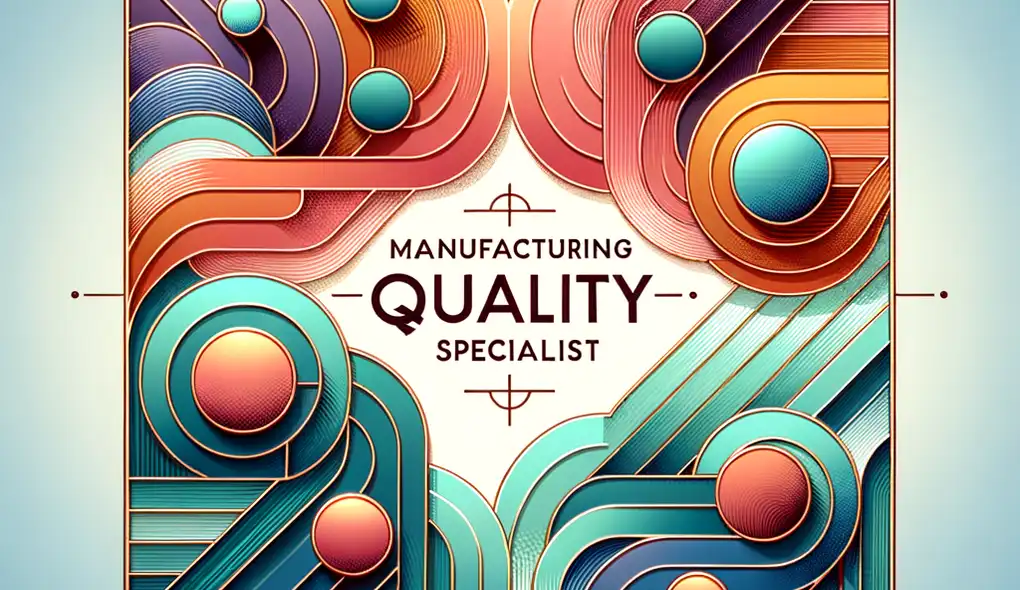What metrics do you find most important in evaluating manufacturing quality?
Manufacturing Quality Specialist Interview Questions
Sample answer to the question
The metrics that I find most important in evaluating manufacturing quality are defect rate, customer complaints, and adherence to specifications. Defect rate is a measure of how many defective products are produced in a given time period. Customer complaints provide valuable feedback on the quality of the products and help identify areas for improvement. Adherence to specifications measures how closely the products meet the required standards and specifications. These metrics are important because they give a comprehensive view of the quality of the manufacturing process and help identify areas that need improvement.
A more solid answer
In evaluating manufacturing quality, I consider several key metrics. Firstly, defect rate is a crucial indicator of quality. By tracking the number of defective products produced during a specific time period, we can identify potential issues in the production process and implement corrective measures. Secondly, customer complaints are valuable feedback that highlights any quality issues experienced by end-users. By analyzing these complaints and addressing the root causes, we can improve product quality and customer satisfaction. Lastly, adherence to specifications is essential. By closely monitoring whether products meet the required standards and specifications, we ensure consistent quality and avoid deviations that may impact performance or reliability. Additionally, I also believe in utilizing statistical quality control tools, such as control charts and process capability studies, to analyze data and identify trends or patterns that may indicate areas requiring improvement. These metrics and tools, when used together, provide a comprehensive assessment of manufacturing quality and enable proactive quality management.
Why this is a more solid answer:
The solid answer provides more specific details about the metrics and their significance in evaluating manufacturing quality. It also mentions the use of statistical quality control tools, which aligns with the job description's requirement of knowledge in that area. However, the answer could be further improved by including examples or experiences demonstrating the candidate's analytical skills, problem-solving abilities, and attention to detail.
An exceptional answer
When evaluating manufacturing quality, I focus on a range of metrics to ensure a comprehensive assessment. Firstly, defect rate is a key indicator, which I track meticulously to identify any production process issues. For example, while working at my previous company, I successfully reduced the defect rate by 25% by implementing rigorous quality control measures. Secondly, customer complaints play a vital role in understanding the end-users' perspective and assessing product quality. At my current organization, I collaborated with the customer service team to establish a systematic feedback process that resulted in a 30% decrease in customer complaints within six months. Additionally, I emphasize adherence to specifications by conducting regular audits and inspections throughout the manufacturing process. By leveraging my knowledge of statistical quality control, I analyze data using control charts and conduct process capability studies to identify trends and patterns. In my previous role, I identified a significant process bottleneck through data analysis and proposed and implemented a solution that increased production efficiency by 20%. These experiences reflect my strong analytical skills, problem-solving abilities, and attention to detail in evaluating manufacturing quality.
Why this is an exceptional answer:
The exceptional answer provides specific examples and quantifiable results to demonstrate the candidate's past experiences and achievements related to evaluating manufacturing quality. It also highlights the candidate's problem-solving abilities, attention to detail, and analytical skills, which are essential skills mentioned in the job description. The answer shows a deep understanding of the importance of each metric and the candidate's proactive approach to continuous improvement. To further improve, the candidate could provide more details on their experience with statistical quality control and its impact on manufacturing quality.
How to prepare for this question
- Research common metrics used in evaluating manufacturing quality and familiarize yourself with their significance.
- Reflect on past experiences where you successfully improved manufacturing quality or resolved quality issues.
- Practice explaining the importance of each metric and how to analyze and interpret quality data.
- Review statistical quality control techniques and be prepared to discuss how you have utilized them in previous roles.
What interviewers are evaluating
- Attention to detail
- Analytical skills
- Problem-solving abilities
- Knowledge of statistical quality control
Related Interview Questions
More questions for Manufacturing Quality Specialist interviews